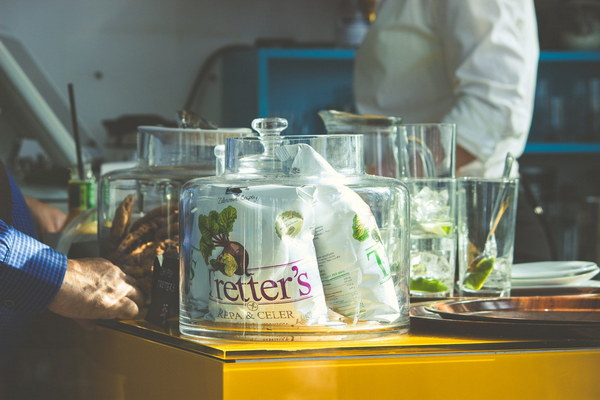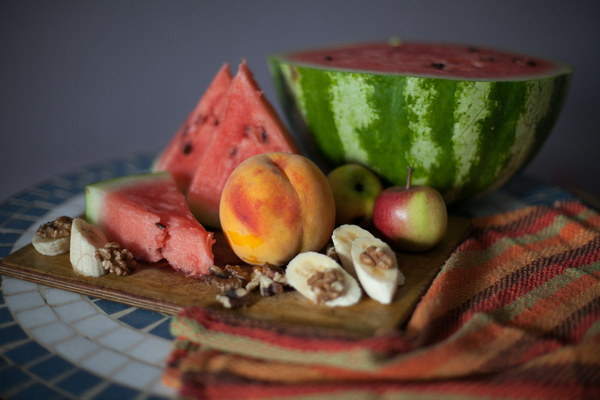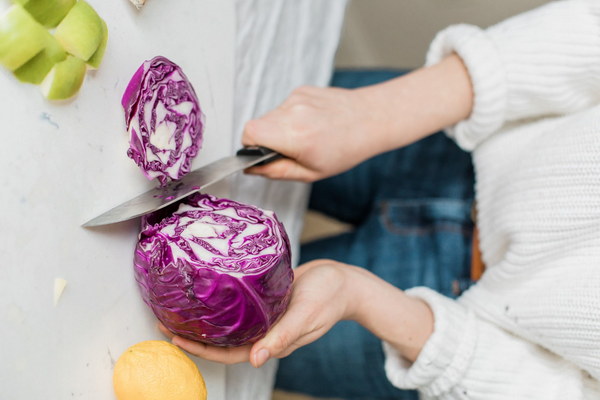Nurturing the Stomach The Timeless Remedies of Herbs We Sipped as Children
From ancient times to the present day, the art of using herbs to heal and nourish the body has been a cherished tradition. As children, we often found ourselves sipping on herbal concoctions that not only tasted peculiar but also promised to keep our stomachs in prime condition. Let's delve into the world of these time-honored remedies and explore the herbal potions that have stood the test of time in nurturing our digestive health.
Chamomile: The Calming Comforter
Chamomile has been a staple in many homes for its calming and soothing properties. As a child, the sweet, fruity taste of chamomile tea was a comforting ritual before bedtime. This herb is known for its anti-inflammatory and antispasmodic qualities, which help to reduce stomach cramps and calm an upset stomach. The gentle nature of chamomile makes it ideal for children, as it can be safely consumed in small doses without the risk of harsh side effects.
Peppermint: The Cool Soother
Peppermint is another popular herb that has been used to aid digestion since ancient times. The refreshing aroma and slightly tingling sensation of peppermint oil or tea can be quite invigorating for children. Peppermint is a natural muscle relaxant that can help alleviate bloating, gas, and indigestion. It's often recommended to sip peppermint tea after meals to aid in digestion and to soothe the stomach.
Fennel: The Digestive Aid

Fennel seeds are not only used as a spice in cooking but also as a digestive aid. In our youth, we may have been given fennel tea to help with tummy troubles. Fennel is rich in fiber, which aids in digestion, and contains essential oils that can help to relax the muscles of the digestive tract. The anethole in fennel is particularly effective in reducing colic and soothing the intestines, making it a favorite among parents and caregivers.
Ginger: The Warming Wonder
Ginger is a powerful herb that is often used to combat nausea and indigestion. Its warm, spicy flavor can be quite invigorating, especially when blended with a touch of honey. In children, ginger tea or ginger ale has been a go-to remedy for motion sickness, morning sickness, and general stomach upset. Ginger has anti-inflammatory properties that can reduce stomach pain and improve digestion.
Dandelion: The Liver Lover
Dandelion is a versatile herb that is often overlooked in its healing capabilities. As children, we may have been introduced to dandelion tea for its natural diuretic effects. However, dandelion is also beneficial for the liver and can support the body's natural detoxification process. The bitter taste of dandelion can stimulate the production of bile, which helps to break down fats and improve digestion.
Cinnamon: The Sweet Spice
Cinnamon, with its warm, sweet flavor, is not only a delightful addition to many desserts but also a digestive aid. It can help regulate blood sugar levels and improve insulin sensitivity, making it beneficial for children with digestive issues that may be related to diabetes or insulin resistance. Cinnamon can also help to reduce bloating and relieve stomach pain.
The use of these herbal remedies is a testament to the wisdom of traditional medicine. While modern medicine has advanced significantly, these natural remedies continue to be valued for their gentle and effective approaches to digestive health. The next time you find yourself in need of a little stomach soothing, perhaps it's time to revisit the herbal potions of your childhood—each sip could be a step towards a healthier and happier gut.









